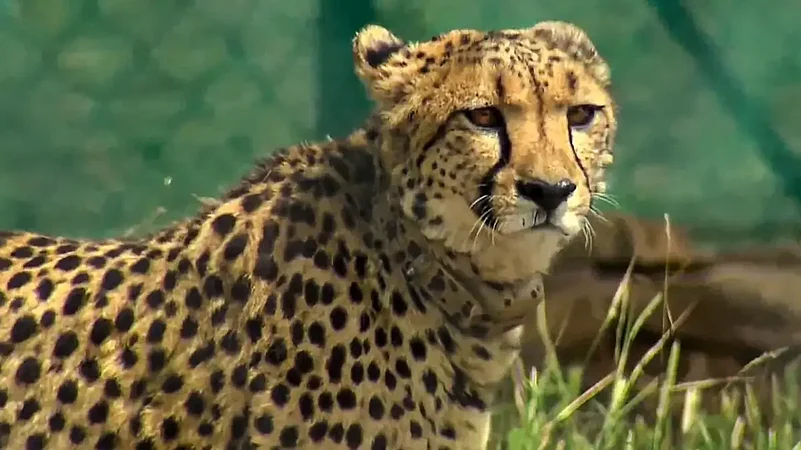Three more cheetahs at Kuno National Park in Madhya Pradesh were suspected to have maggot-infested wounds, caused by their GPS collars, triggering fresh controversy. This came just a day after the death of two cheetahs inside the park in two days, which set off global concerns.
The latest reports set off a massive scramble to locate the concerned cheetahs and treat them. Controversy had erupted at Kuno National Park after international experts visiting noted that the radio collars might be causing problems for the animals. The Ministry of Environment, Forest and Climate Change (MoEF&CC), had said that reports of cheetah deaths due to radio collars were not based on scientific evidence, and that “all mortalities are due to natural causes”, even though experts and conservators noted that the first deaths may have been related to the collars.
However, the latest developments changed the narrative around the story almost immediately. The state departments scrambled to locate the concerned animals and provide treatment as it was now forced to accept and act on the issue of the GPS collars. The state government also dismissed its chief wildlife warden, Jasbir Singh Chouhan, an IFS officer.
According to forest officials speaking to Times of India, one of the cheetahs, Pawan (formerly known as Oban), was tranquillized by a team of doctors. After rendering the cheetah unconscious, the doctors removed the collar ID that was attached to Pawan's neck. It was a timely intervention that saved the animal's life as flies had already laid eggs. Had maggots hatched shortly, they would have tunnelled for the animal's brain, leading to death. This and the subsequent finding of maggot infestations in the other cheetahs sparked off concerns that even more of the animals could now be facing serious issues with the collars. Finally accepting that this was now an urgent situation, the state machinery scrambled into action.
Four doctors were on-site at the park. Owing to the severity of the situation, however, four more have been called in from Gwalior and Bhopal. The combined medical team will work together with forest officials to locate and tranquilise and then treat the animals. Beyond the emergency efforts underway, it is now expected that all radio-collared cheetahs may be located and brought back to their enclosures for close examination, and drones would be used to monitor the situation.


























